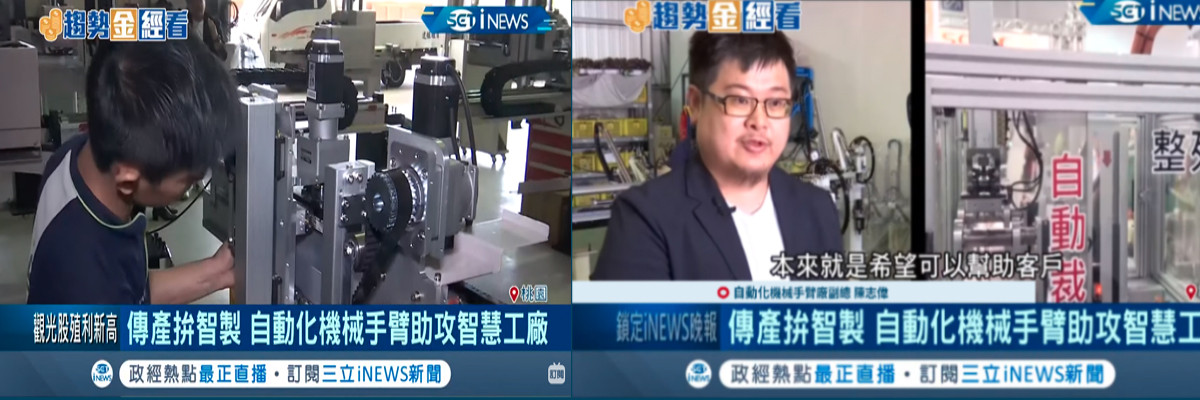
The Dawn of Automation on the Road to Manufacturing Recovery
As the recent outbreak of COVID-19 has eased, China has taken the lead in "lifting the lockdown" of major cities and actively resuming work and restarting the supply chain. The US government is considering reopening markets due to political and economic factors, and Western European countries have also decided to gradually relax lockdown measures.
However, many experts and scholars believe that this global pandemic may make the coronavirus a periodic disease, causing an irreversible change in future human lifestyles. Therefore, in the face of the pressure that the epidemic may flare up at any time, the road to resuming work in the global manufacturing industry is shrouded in clouds and extremely bumpy. However, there is still a ray of hope guiding companies forward, and that is robotics and automation.
What kind of automation is more important?
Even the most massive and well-managed top factories may be forced to close their doors due to a tiny virus, highlighting the unreliability and vulnerability of humans. Robots that can work around the clock without interruption and ignore the impact of diseases have become the best choice to ensure smooth resumption of work.
Today, many large enterprises with the ability to produce and sell across countries are considering accelerating the introduction of AI robots and automation systems after thinking about risk diversification measures. Robots do not have management problems due to language and cultural differences, their efficiency and quality can be more predictable, and they are not restricted by labor laws on working hours, so they have become a fast and low-risk investment.
In addition, the serious epidemic outbreak in China has deepened the determination of advanced countries such as the United States and Japan to move their production lines back home, which is expected to drive strong demand for robots and automation equipment in the future. The automation process in the manufacturing industry is an absolute trend.
Hi-More's perspective: Automation - A solution for flexible deployment and efficient production.
The era of relying on cheap labor for production is becoming a thing of the past. The recent pandemic has forced companies to reexamine their workforce scheduling on the production line. Hi-More's various robotic arms and highly customizable capabilities can address the various difficulties and challenges faced by traditional industries when implementing automation systems, meeting the practical needs of production and providing unparalleled benefits.
Hi-More holds nearly 60% of the market share in Taiwan's traditional manufacturing industry, such as plastic injection molding, and also enjoys a highly regarded reputation overseas. In practical applications, the robots and automation systems provided by Hi-More can significantly reduce product error rates, streamline production management, and simplify operation and maintenance. They can effectively increase production capacity and reduce production costs, which conforms to the global trend of optimizing the human-machine collaboration in the production process.
Considering that the degree of automation varies depending on the business characteristics and production needs of each enterprise, Hi-More has successfully repositioned its brand, upgraded its brand positioning, and transformed from a mechanical arm OEM factory to a professional automation solution provider. Hi-More's business department provided an example that in the past, customers paid high fixed costs while the number of quarterly orders fluctuated. However, through Hi-More's professional planning, the automated production line can adjust its production capacity according to the quantity of orders, enhance the flexibility of labor utilization, and improve product quality while shortening the delivery time.
We must emphasize that the COVID-19 pandemic is bringing about the most severe impact and changes to human society since World War II. According to the Oxford Economics research institute, the global economy is estimated to evaporate $1.1 trillion under the spread of the coronavirus, equivalent to a 1.3% contraction in global GDP. Forrester also warns that this pandemic could cost the global economy more than $4 trillion in losses, and these cold figures do not even include the countless innocent lives lost.
In the post-COVID-19 era, humans must adapt to new lifestyles, and the global manufacturing industry is forced to seek new breakthroughs. As a result, robotics and automation have become the core of corporate decision-making. In an interview on television, Hi-More's General Manager, Vic Chen, expressed his altruistic mindset in helping clients find new opportunities after the crisis: "I have been looking for some partners to let these customers see an actual industrial machine. These successful cases can actually give them more confidence. I want to create that atmosphere so that everyone can improve together in this industry." Such a statement has created the most solid foundation of trust for Hi-More and its clients on the future path of cooperation.
